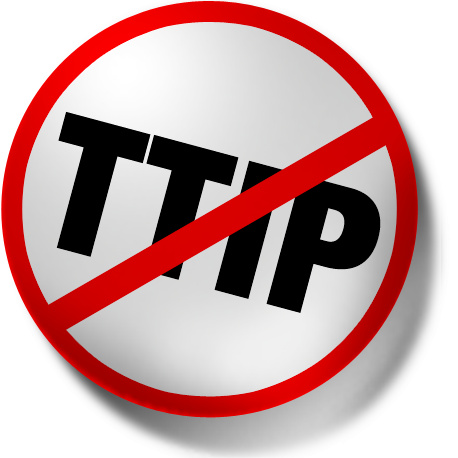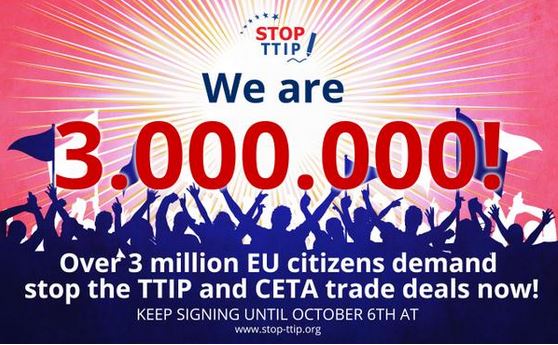
TTIP: EU’s trade committee sides with corporate lobbies, leaving social justice and the environment high and dry
The European Parliament’s committee on international trade has passed a resolution today that expresses support for TTIP, the trade treaty with the US that the EU is currently negotiating. SOMO, TNI, Both ENDS and Friends of the Earth Netherlands are shocked and dismayed at the commission’s reversal.
They call the vote a setback to democracy and a slap in the face of European public opinion. The European citizens’ initiative against the trade treaty has now collected almost two million signatures, more than 60,000 of them in the Netherlands.
Pietje Vervest of the Transnational Institute (TNI): “Millions of people across Europe have said no to TTIP. Nonetheless, the European Parliament is taking sides with the business lobbyists, instead of its own constituency.” The lobby group BusinessEurope were quick to express their satisfaction with the vote.
Members of the European Parliament (MEPs) also shared their support for the controversial proposal by the European Commission to install an Investor-State Dispute Settlement (ISDS) system, which would grant special privileges to foreign corporations. If they found that local laws or regulations lead to reductions in their earnings, foreign companies could take the governments in question to court.
The text drafted by chairman of the committee Bernd Lange, marks an important inflection point. The committee is no longer rejecting the fiercely criticised ISDS arbitration system. Instead, it expresses support for the new proposals that actually maintain the arbitration system. Lange was publicly criticised by other MEPs for the procedure used to impose his support for ISDS.
Geert Ritsema of FoE Netherlands: “That the trade commission is now embracing this monster-treaty despite everything is impossible to understand in democratic terms. MEPs are fully handing over their say to the international business world. In every treaty where we have seen the ISDS at work so far, it has become apparent that national and local governments are being forced to water down or roll back laws that protect the environment, our health or civil rights.
Recently there has been widespread coverage of ISDS cases where companies have taken states and other instances to court regarding laws that had been designed to protect public health and the environment.





